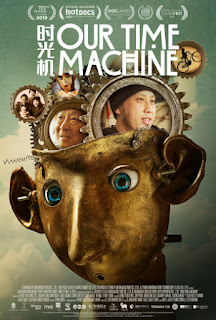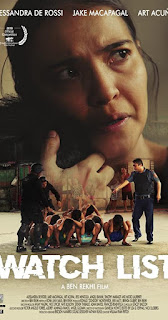Merry Christmas everybody! In theaters today:
Promising Young Woman--Cassie, played by Carey Mulligan, is "promising" in a rather grim sense here: promising as prey. Guys find her alone in bars, tipsy and mumbling. They gallantly offer her a ride, then when the get her back to their places, they start to undress and assault her. At this point, she drops the bleary manner and they realize that she isn't drunk at all, and they're in trouble.
She was on track to graduate med school, but something bad happened, and now Cassie lives with her worried parents (Clancy Brown and Jennifer Coolidge) and works by day in a coffee bar. A pleasant young doctor (Bo Burnham) that she knew back in school buys coffee one day, and flirts with her, and she's pulled into a romance with him, but her secret nighttime hobby persists.
The feature directing debut of the English actress and writer Emerald Fennell, this revenge shocker explores the ugly truth that men widely regard an incapacitated woman as, quite literally, fair game; Cassie's would-be rapists react to her trap as if it's a mean and unfair trick. But Fennell is more ambitious than merely giving us the satisfaction of seeing the tables turned on these creeps. She's determined to have Cassie take on the whole structure that tolerates rape culture; the enablers, the passive witnesses, etc.
The results are quite convoluted and brutal and harsh. But Fennell and Mulligan maintain an edge of caustic wit that gives the film a charge. It ends with a smile, but not a smile that lets us off the hook.
WW84--Wonder Woman was introduced in the comics in 1941 to fight Nazis and Mussolini and other thugs of that period. Her first star vehicle in the movies, just three years ago, reset her origin story in the World War I era. This cheeky sequel, with Gal Gadot returning as Diana, has her living in Washington D.C. in the mid-'80s, working at the Smithsonian and not looking a day older than she did when Woodrow Wilson was president.
Diana befriends a supposedly dowdy, recessive coworker (Kristin Wiig), and runs afoul of a blustering TV conman (Pedro Pascal), a "Greed is Good," You-Can-Have-It-All type, who has stumbled upon the supernatural power to grant people's wishes, but who, of course, has never heard about being careful what you wish for. This same rather vague McGuffin allows Diana to reunite with her love interest from the earlier film, Steve Trevor (Chris Pine). Before the end of this two-and-half-hour tale, we get the origin of WW's Invisible Jet, and our heroine also has to grapple with a new iteration of one of her '40s-era enemies from the comics, the were-cat known as The Cheetah.
Returning director and co-writer Patty Jenkins generates period through style as well as sets and costumes; the film often feels like an overstuffed '80s big-budgeter. I lived in D.C. in the late '80s, and neighborhoods where I worked are featured in a number of scenes, which gave me an extra nostalgic buzz. It's all a bit fuzzy around the edges, but it doesn't take itself too seriously, and like the first movie, though perhaps more so, it has a generous spirit. Gadot is good company once again, and Wiig brings both humor and unexpected anger to her role.
The TV fraud's worldwide mischief results in the appearance of a huge wall, of national and international chaos, and of the threat of nuclear war. It's just possible he's meant to remind us of somebody or other.



















































